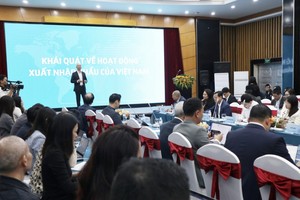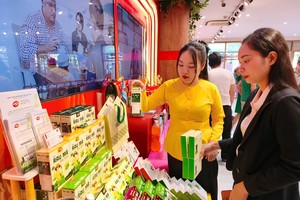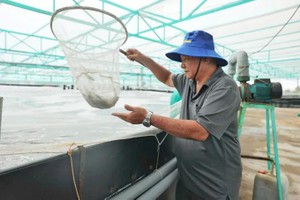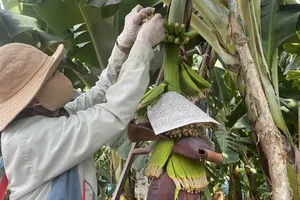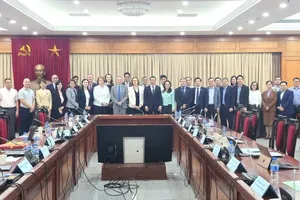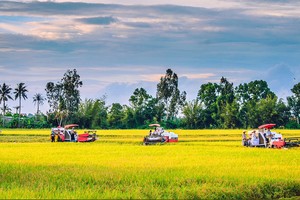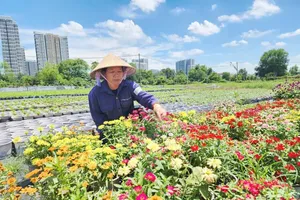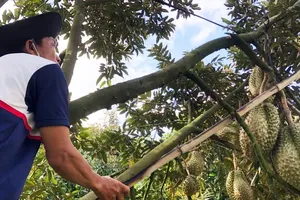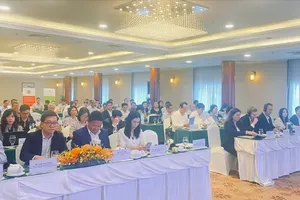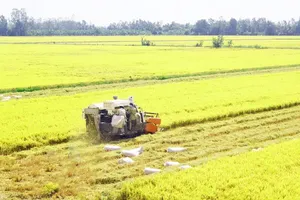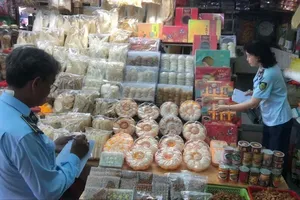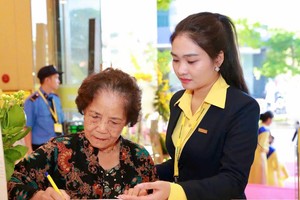
According to Nguyen Thanh Tai, Vice Director of the provincial Department of Agriculture and Rural Development, as part of efforts to boost mango production, Dong Thap has invested in improving technology infrastructure, dyke system and farming technology towards global agricultural practice standards (GAP) as well as post-harvest industry.
Two mango farming areas with a combined area of 33 hectares in Cao Lanh district and Cao Lanh city have reached GlobalGAP standards, while two others with a total area of over 48 hectares have met VietGAP standards.
So far, Dong Thap has developed six safe mango production areas in Cao Lanh district and Cao Lanh city with total area of over 416 hectares.
Local farmers have also had higher awareness of applying technological advances in farming. Over 80 percent of mango output has been bought in large amounts.
Meanwhile, the province has registered intellectual property for its Cat Chu Cao Lanh and Cao Lanh Mangos brands.
Tai added that the province has been successful in providing mango throughout the year instead of just one season.
However, Nguyen Phuong Tuyen, head of the Office for Technology and IT Research under the provincial Department of Agriculture and Rural Development, said that in the coming time, the province will not expand mango farming areas but focus on investing in storing and processing stages to enhance the value chain in mango production.
Under contracts signed more than two years ago, each month, Dong Thap has exported 100-200 tonnes of mangos to Japan, the Republic of Korea, Hong Kong (China) and New Zealand.
Prof. Dr. Tran Van Ha from Can Tho University advised Dong Thap to foster connectivity among farmers and between farmers and enterprises in boosting mango production, one of the key pillars in the province’s agricultural restructuring strategy.
Meanwhile, Prof. Dr. Nguyen Bao Ve, former head of the Agriculture Faculty of Can Tho University asserted that Dong Thap should manage nutrition for mango trees to improve mango quality, while focusing on diversifying mango products to meet market demands.
